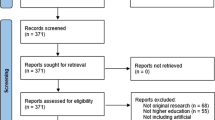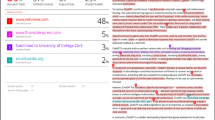Abstract
This quasi-experimental study adds to the small existing literature on orthographic-related teacher knowledge in an English as a foreign language (EFL) context. The study examined the impact of a course on English orthography on predominantly non-native-speaking EFL preservice and inservice teachers’ orthographic content knowledge, and the extent to which these teachers retained orthographic-related content knowledge four months after participating in a semester course on the topic. In addition, the study examined the relationship between participants’ acquired orthographic-related content knowledge and EFL spelling. Both groups of teachers that studied in the course improved on overall orthographic-related content knowledge, both immediately following the course and longitudinally. Preservice and inservice participants showed similar levels of orthographic knowledge prior to course participation and both showed significant improvements compared to controls following course participation. Participants also retained knowledge four months after course completion. Overall, the inservice teachers scored higher on orthographic-related knowledge, possibly as a result of the immediate application of their newly acquired knowledge. An unexpected finding was a lack of interaction between acquired orthographic-related content knowledge and pseudo word spelling scores. Possible methodological limitations, such as number of participants as well as the length and scope of the course, may explain this outcome. This paper also discusses practical implications of this study for EFL decoding and spelling instruction.
Similar content being viewed by others
Notes
The State of Israel Ministry of Education Pedagogical Administration Planning, Management and Preparation Kits (2014–2015) recommends nine L1 weekly instructional hours in third grade, seven in fourth grade, and six in fifth and sixth grade (this includes all language arts in either Hebrew or Arabic L1). The same document recommends four EFL weekly instructional hours starting in fourth grade and continuing in fifth and sixth grade. The document states that allocation of these hours may be manipulated within a 25 % range (State of Israel Ministry of Education Pedagogical Administration, 2014).
References
Adams, M. J. (1990). Beginning to read: Thinking and learning about print. Cambridge, MA: The MIT Press.
Al Otaiba, S. (2005). How effective is code-based reading tutoring in English for English learners and preservice teacher-tutors? Remedial and Special Education, 26, 245–254. doi:10.1177/07419325050260040701.
Benisty, C. (2010). A lexical syllabus for teaching English in junior high school: Improving vocabulary acquisition. Saarbrucken: Lambert Academic Publishing.
Berninger, V. W., Abbott, R. D., Thomson, J. B., & Raskind, W. H. (2001). Language phenotype for reading and writing disability: A family approach. Scientific Studies of Reading, 5, 59–106.
Bos, C., Mather, N., Dickson, S., Podhajski, B., & Chard, D. (2001). Perceptions and knowledge of preservice and inservice educators about early reading instruction. Annals of Dyslexia, 51, 97–120.
Brady, S., & Moats, L. (1997). Informed instruction for reading success: Foundations for teacher preparation. A position paper of the international dyslexia association. Baltimore: International Dyslexia Association.
Carreker, S. H., & Birsh, J. R. (2005). Multisensory teaching of basic language skills: Activity book. MD: Paul H. Brookes.
Carreker, S. H., Neuhaus, G. F., Swank, P. R., Johnson, P., Monfils, M. J., & Montemayor, M. L. (2007). Teachers with linguistically informed knowledge of reading subskills are associated with a Matthew effect in reading comprehension for monolingual and bilingual students. Reading Psychology, 28, 187–212.
Crim, C., Hawkins, J., Thornton, J., Boon Rosof, H., Copley, J., & Thomas, E. (2008). Early childhood educators’ knowledge of early literacy development. Issues in Teacher Education, 17, 17–30.
Cunningham, A. E., Etter, K., Platas, L., Wheeler, S., & Campbell, K. (2015). Professional development in emergent literacy: A design experiment of teacher study groups. Early Childhood Research Quarterly, 31, 62–77. doi:10.1016/j.ecresq.2014.12.0020885-2006/.
Ehri, L. C. (2014). Orthographic mapping in the acquisition of sight word reading, spelling memory, and vocabulary learning. Scientific Studies of Reading, 18, 5–21. doi:10.1080/10888438.2013.819356.
Eisenbeiss, S. (2010). Production methods in language acquisition research. In E. Blom & S. Unsworth (Eds.), Experimental methods in language acquisition research (pp. 11–34). Amsterdam: Benjamins.
Feuer, M. J., Floden, R. E., Chudowsky, N., & Ahn, J. (2013). Evaluation of teacher preparation programs: Purposes, methods, and policy options. Washington: National Academy of Education.
Foorman, B. R., & Petscher, Y. (2010). Development of spelling and differential relations to text reading in grades 3-12. Assessment for Effective Intervention, 36, 7–20. doi:10.1177/1534508410379844.
Frost, R. (2005). Orthographic systems and skilled word recognition process in reading. In M. J. Snowling & C. Hulme (Eds.), The science of reading: A handbook (pp. 272–295). Oxford: Blackwell.
Garson, D. G. (2012). Generalized linear models and generalized estimating equations. Statistical Associate Publishers, Retrieved from http:www.statisticalassociates.com.
Gunderson, L., Murphy Odo, D., & D’Silva, R. (2011). Second language literacy. In E. Hinkel (Ed.), Handbook of research in second language teaching and learning (Vol. 2, pp. 472–487). New York: Routledge.
Goldfus, C. (2012). Knowledge foundations for beginning reading teachers in EFL. Annals of Dyslexia, 62, 204–221. doi:10.1007/s11881-012-0073-5.
Henry, M. K. (2003). Unlocking literacy: Effective decoding and spelling instruction. Maryland: Brookes.
Kahn-Horwitz, J. (2015). Organizing the mess in my mind: EFL teachers’ perceptions and knowledge of English orthography. Reading and Writing, An Interdisciplinary Journal, 28, 611–631. doi:10.1007/s11145-015-9541-8.
Kahn-Horwitz, J., Kuash, S., Ibrahim, R., & Schwartz, M. (2014). How do previously acquired languages affect acquisition of English as a foreign language: The case of Circassian. Written Language and Literacy, 17, 40–61. doi:10.1075/wll.17.1.03kah.
Kahn-Horwitz, J., Schwartz, M., & Share, D. (2011). Acquiring the complex English orthography: A triliteracy advantage? Journal of Research in Reading, 34, 136–156. doi:10.1111/j.1467-9817.2010.01485.x.
Kahn-Horwitz, J., Shimron, J., & Sparks, R. L. (2006). Weak and strong novice readers of English as a foreign language: Effects of first language and socioeconomic status. Annals of Dyslexia, 56, 161–186.
Kahn-Horwitz, J., Sparks, R. L., & Goldstein, Z. (2012). English as a foreign language spelling development: A longitudinal study. Applied Psycholinguistics, 33, 343–363. doi:10.1017/S0142716411000397.
Kroese, J. M., Mather, N., & Sammons, J. (2006). The relationship between nonword spelling abilities of K-3 teachers and student spelling outcomes. Learning Disabilities: A Multidisciplinary Journal, 14, 85–89.
Larson, S. L., Hammill, D. D., & Moats, L. C. (2013). Test of written spelling (5th ed.). Austin, TX: Pro-ed.
Lipsitz, S., & Fitzmaurice, G. (2009). Generalized estimation equations for longitudinal data analysis. In G. Fitzmaurice, M. Davidian, G. Verbeke, & G. Molenberghs (Eds.), Longitudinal data analysis (pp. 43–78). FL: Taylor and Francis.
Lyon, G. R., & Weiser, B. (2009). Teacher knowledge, instructional expertise, and the development of reading proficiency. Journal of Learning Disabilities, 42, 475–480. doi:10.1177/0022219409338741.
Mahony, D., Singson, M., & Mann, V. (2000). Reading ability and sensitivity to morphological relations. Reading and Writing: An Interdisciplinary Journal, 12, 191–218.
Mather, N., Bos, C., & Babur, N. (2001). Perceptions and knowledge of preservice and inservice teachers about early literacy instruction. Journal of Learning Disabilities, 34, 472–482.
Moats, L. C. (1994). The missing foundation in teacher education: Knowledge of the structure of spoken and written language. Annals of Dyslexia, 44, 81–102.
Moats, L. C., (2004). Efficacy of a structured, systematic language curriculum for adolescent poor readers. Reading and Writing Quarterly, 20, 145–159. doi:10.1080/10573560490262082.
Moats, L. C. (2009). Knowledge foundations for teaching reading and spelling. Reading and Writing: An Interdisciplinary Journal, 22, 379–399.
Moats, L. (2014). What teachers don’t know and why they aren’t learning it: addressing the need for content and pedagogy in teacher education. Australian Journal of Learning Difficulties, 19, 75–92. doi:10.1080/19404158.2014.941093.
Moats, L. C., & Foorman, B. R. (2003). Measuring teachers’ content knowledge of language and reading. Annals of Dyslexia, 53, 23–45.
Piasta, S. B., McDonald Connor, C., Fishman, B. J., & Morrison, F. J. (2009). Teachers’ knowledge of literacy concepts, classroom practices, and student reading growth. Scientific Studies of Reading, 13, 224–248. doi:10.1080/10888430902851364.
Roffman, N. H. (2012). The impact of an explicit, multi-sensory, phonics intervention programme on the professional development of the English as a foreign language teacher. (Doctoral dissertation, Anglia Ruskin University). Retrieved from http://angliaruskin.openrepository.com/arro/bitstream/10540/273132/1/Naomi%20Roffman%20thesis.pdf.
Russak, S., & Kahn-Horwitz, J. (2015). English foreign language spelling: Comparisons between good and poor spellers. Journal of Research in Reading, 38, 307–330. doi:10.1111/jrir.12009. Retrieved from http://onlinelibrary.wiley.com.mgs.oranim.ac.il/doi/10.1111/jrir.12009/pdf.
Seidenberg, M. (2013). The science of reading and its educational implications. Language Learning and Development, 9(4), 331–360. doi:10.1080/15475441.2013.812017.
Seymour, P. H. K., Aro, M., & Erskine, J. M. (2003). Foundation literacy acquisition in European orthographies. British Journal of Psychology, 94, 143–174.
Shahar-Yames, D., & Share, D. L. (2008). Spelling as a self-teaching mechanism in orthographic learning. Journal of Research in Reading, 31, 22–39. doi:10.11111/j.1467-9817.2007.00359.x.
Shankweiler, D., & Fowler, A. E. (2004). Questions people ask about the role of phonological processes in learning to read. Reading and Writing: An Interdisciplinary Journal, 17, 483–515.
Share, D. L. (1995). Phonological recoding and self-teaching: Sine qua non of reading acquisition. Cognition, 55, 151–218.
Shohamy, E. (2014). The weight of English in global perspective: The role of English in Israel. Review of Research in Education, 1-17. doi: 10.3102/0091732X13509773.
Spear-Swerling, L., & Brucker, O. P. (2003). Teachers’ acquisition of knowledge about English word structure. Annals of Dyslexia, 53, 72–103.
State of Israel Ministry of Education Pedagogical Administration. (2014). Maarzey Tixnun Nihul V’hearxut [Planning management and preparation kits]. Jerusalem: Ministry of Education. Retrieved from http://meyda.education.gov.il/files/MinhalPedagogy/b-print.pdf.
Treiman, R. (1998). Why spelling? The benefits of incorporating spelling into beginning reading instruction. In J. Metsala & L. Ehri (Eds.), Word recognition in beginning literacy (pp. 289–313). Mahwah, NJ: Erlbaum.
Vellutino, F. R. (2003). Individual differences as sources of variability in reading comprehension in elementary school. In A. P. Sweet & C. E. Snow (Eds.), Rethinking reading comprehension (pp. 51–81). NY: The Guilford Press.
Venezky, R. L. (1999). The American way of spelling: The structure and origins of American English orthography. New York: The Guildford Press.
Weiser, B., & Mathes, P. (2011). Using encoding instruction to improve the reading and spelling performances of elementary students at risk for literacy difficulties: A best-evidence synthesis. Review of Educational Research, 81, 170–200. doi:10.3102/0034654310396719.
Acknowledgments
This research was funded by a grant from Oranim Academic College of Education Graduate Department and Research Authority.
Author information
Authors and Affiliations
Corresponding author
Appendices
Appendix 1
Adapted teacher knowledge survey




Appendix 2
Real Word Spelling
-
1.
accept: Please accept this gift.
-
2.
make: In the morning I will make a sandwich.
-
3.
frustrate: The number of car accidents each year frustrate the efforts of the organizations trying to prevent them.
-
4.
pocket: My phone is in my pocket.
-
5.
public: Public transport is fairly good.
-
6.
message: I sent her a message.
-
7.
thick: They walked through a thick forest.
-
8.
thousand: Ten hundreds make a thousand.
-
9.
nice: Today is a nice day.
-
10.
ground: After the rain the ground is wet.
-
11.
shock: The bad news came as a shock.
-
12.
loud: The noise was extremely loud.
-
13.
button: The button on my jacket came off.
-
14.
thunder: The rain poured down and it started to thunder.
-
15.
sudden: A sudden decision.
-
16.
concentrate: I need to concentrate on passing this exam.
-
17.
path: a garden path
-
18.
sound: sound waves
-
19.
attack: The town was under attack.
-
20.
bucket: There is water in the bucket.
-
21.
think: I need to think about this.
-
22.
confuse: I often confuse the twins.
-
23.
with: Please may I have coffee with milk.
-
24.
outline: I will prepare a brief outline of the course.
-
25.
hammer: Hit the nail with the hammer.
Appendix 3
Pseudo Word Spelling
plice, tround, conbencrate, fessage, thip, glound, crucket, conbuse, ousrine, dith, nath, annack, thint, acceft, cludden, thouvand, dake, thubler, frupthate, cammer, tutton, thricket, toud, shublic, slock
Rights and permissions
About this article
Cite this article
Kahn-Horwitz, J. Providing English foreign language teachers with content knowledge to facilitate decoding and spelling acquisition: a longitudinal perspective. Ann. of Dyslexia 66, 147–170 (2016). https://doi.org/10.1007/s11881-015-0120-0
Received:
Accepted:
Published:
Issue Date:
DOI: https://doi.org/10.1007/s11881-015-0120-0




